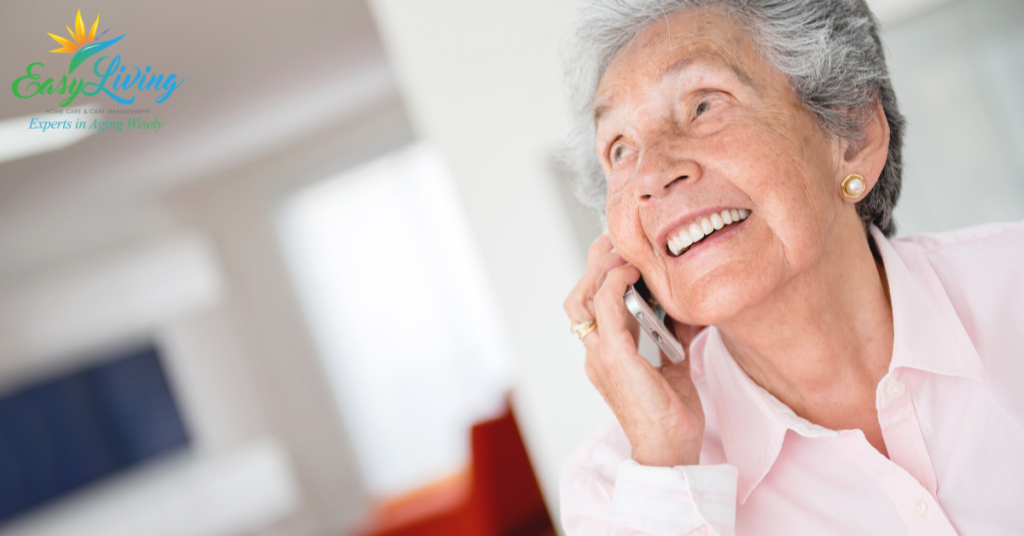Are your elderly relatives safe at home during this coronavirus pandemic?
The first question is are they staying at home? We have noticed that, despite Florida’s stay-at-home advisory for those 65+ and with underlying conditions, a lot of seniors continue going out. In the last week, we heard about a few people’s elderly relatives going to stores multiple times in a day, and then repeating that again the next day. Others continue visiting neighbors.
How can we encourage our elderly relatives to stay safe at home during coronavirus concerns, rather than going out?
As different areas tighten up restrictions, this may help make the situation clearer to our older relatives (and everyone, especially with high risk). But, in addition to that, we recommend:
1. Do not scold or shame.
No one likes being made to feel like a child or shamed for their behavior. You can be strong in expressing your concerns and the seriousness without blaming and shaming.
2. Find out why they are going out.
Is it a specific need or concern that you could help them solve? We have to remember our elderly relatives may want to stay safe at home during coronavirus but may not know how to get their needs met. They may be unfamiliar with delivery services or pickup options for groceries, pharmacies, and essentials. Some elders do not have access to the technology that might be common to us. (We’re all learning to adapt to a lot more technology these days!) How can you help? What can you set up and do for them?
We’ve created a supplies shopping checklist, which you’ll see pop up on this page to download for free. Or, we welcome you to contact us (727-447-5845 or 813-33-5020) if you need a copy, have questions or need someone to help obtain supplies.
3. Dig deeper into that “why”.
You might continue feeling frustrated when you think you have set your elderly relatives up with what they need to stay safe at home during coronavirus. Yet, they continue going out. Remember, they may have what they need logistically. But, they may not have what they need emotionally. Most likely, they are anxious, fearful, and lonely. For some elders, trips to the store, doctors’ appointments and the like may be their daily routine. Those contacts with employees at those places might be some of their only social connections.
What can you do to address those needs? Again, this might be where technology comes into play, setting them up to easily do video calls and connect with others. Additionally, they might benefit from a home health aide helping, but also providing companionship. Remember that many elders will not express these feelings. Instead, you may find yourself arguing over why your elderly relatives refuse to stay safe at home during coronavirus. And, you may feel their reasoning doesn’t make sense, because their stated reasoning is not the real motivation.
Wellness Check: Finding Out if Your Elderly Relatives are Safe at Home When Isolating Due to Coronavirus
Now, if your elderly relatives are staying home and practicing appropriate social distancing, how do you know they’re okay?
Download our free Wellness Checklist of questions to ask. Call your loved ones with this checklist handy. Find out if your elderly relatives are safe at home during coronavirus isolation.
It is important when checking if your elderly relatives are safe at home under coronavirus isolation measures not to make assumptions. Simply asking “Are you doing okay?”, “Do you have what you need?” may not be enough.
How to Really Assess Wellness
Ask about specific behaviors. For example, ask Mom what she ate for breakfast this morning. Find out what she has to cook at home, rather than just asking “Do you have enough food?”
Consider using video calls. We often recommend setting clients up with an Amazon Echo Show. Or, set up Zoom or Skype on their smartphone or computer. These tools can be pretty simple to use if you set them up and show them in simple steps how to use them. This is something we have been doing for a number of clients.
Take time for the conversation. Ask about mental wellness too. Check in about how your loved one is feeling. Take some time to connect and discuss things like happy memories.
Monitoring
Video calls and regular check-in calls using our checklist of questions helps. But, many families also find that having a regular set of eyes and ears visiting their loved one is key. Our home health caregivers, considered essential workers during the coronavirus crisis, serve to do more than tasks. They provide companionship and help spotting problems.
Additionally, our care managers are experts at assessing. We often notice things, just in a conversation with an elderly client, that might indicate something more is happening. Our care managers know what to ask. They can also help set up tracking key indicators of health. And, they can explore telehealth options for your loved one to get the continued care and advice they need.
Worried about a loved one?
Reach out to discuss your concerns, get resources, find help.







